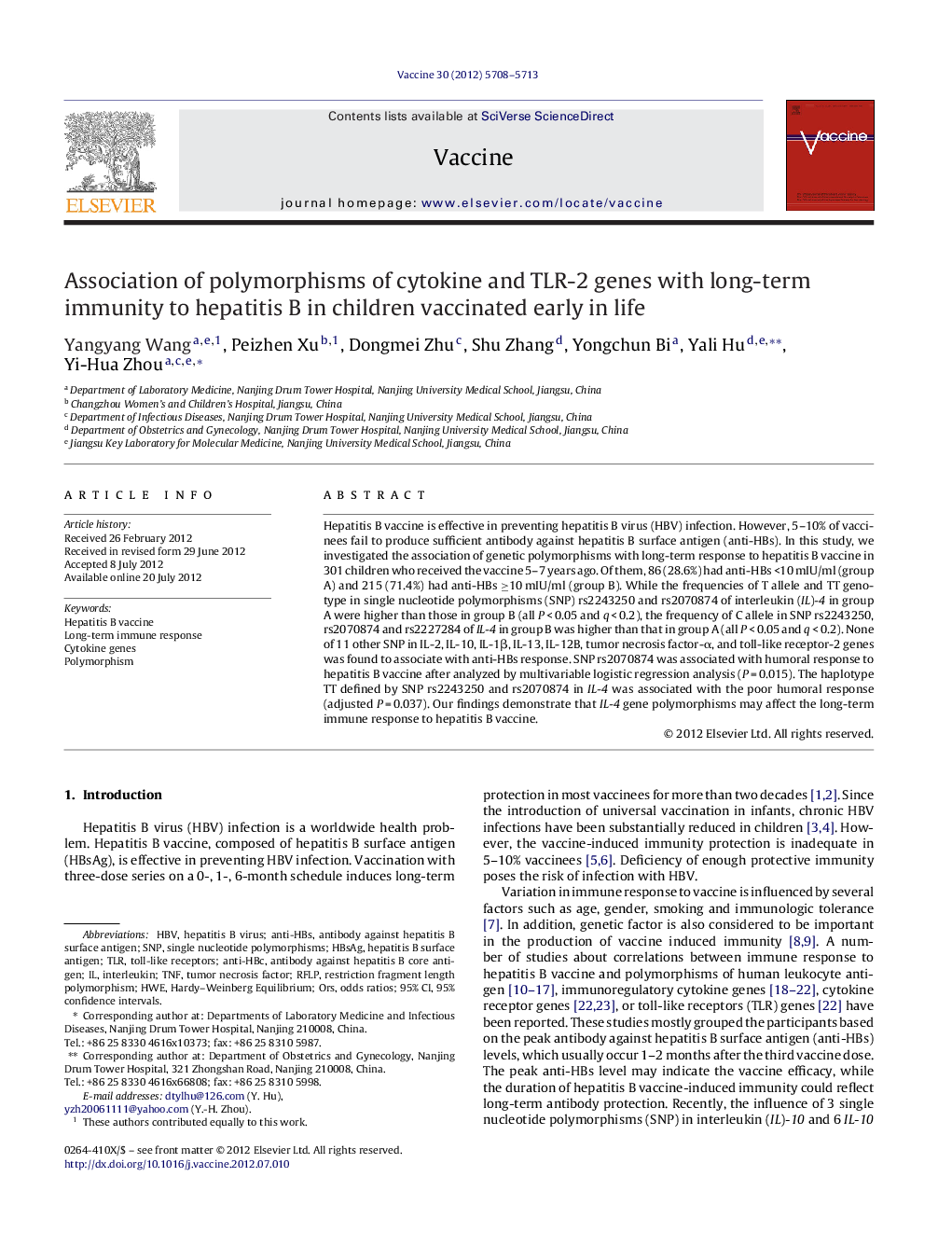| Article ID | Journal | Published Year | Pages | File Type |
|---|---|---|---|---|
| 2402752 | Vaccine | 2012 | 6 Pages |
Hepatitis B vaccine is effective in preventing hepatitis B virus (HBV) infection. However, 5–10% of vaccinees fail to produce sufficient antibody against hepatitis B surface antigen (anti-HBs). In this study, we investigated the association of genetic polymorphisms with long-term response to hepatitis B vaccine in 301 children who received the vaccine 5–7 years ago. Of them, 86 (28.6%) had anti-HBs <10 mIU/ml (group A) and 215 (71.4%) had anti-HBs ≥10 mIU/ml (group B). While the frequencies of T allele and TT genotype in single nucleotide polymorphisms (SNP) rs2243250 and rs2070874 of interleukin (IL)-4 in group A were higher than those in group B (all P < 0.05 and q < 0.2), the frequency of C allele in SNP rs2243250, rs2070874 and rs2227284 of IL-4 in group B was higher than that in group A (all P < 0.05 and q < 0.2). None of 11 other SNP in IL-2, IL-10, IL-1β, IL-13, IL-12B, tumor necrosis factor-α, and toll-like receptor-2 genes was found to associate with anti-HBs response. SNP rs2070874 was associated with humoral response to hepatitis B vaccine after analyzed by multivariable logistic regression analysis (P = 0.015). The haplotype TT defined by SNP rs2243250 and rs2070874 in IL-4 was associated with the poor humoral response (adjusted P = 0.037). Our findings demonstrate that IL-4 gene polymorphisms may affect the long-term immune response to hepatitis B vaccine.
► We study the role of gene polymorphisms in immune response to hepatitis B vaccine. ► The T allele and TT genotype in IL-4 (−590, −33) are associated with poor response. ► The C allele in IL-4 (−590, −33, +2979) is associated with good response. ► Eleven other sites were not associated with the immune response. ► Polymorphisms in IL-4 gene may influence the long-term immune response.
